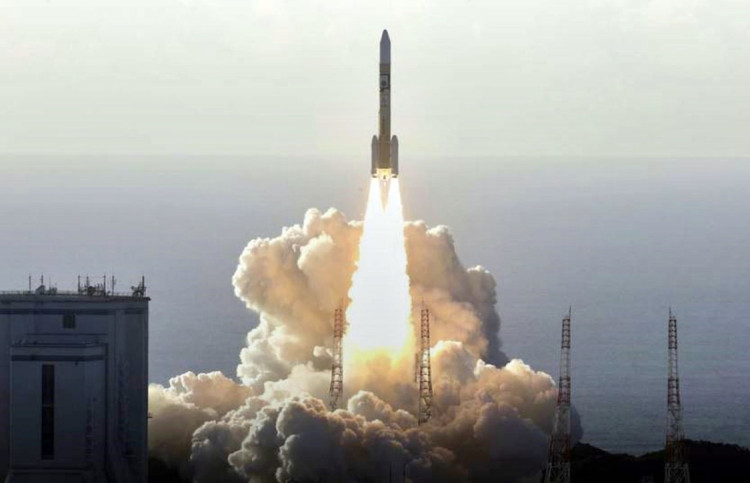South Korea's military announced Wednesday that it successfully tested a solid-fuel space rocket for the first time, a milestone that will eventually enable the launch of a network of satellites to monitor threats such as North Korea.
The launch is the first of its kind since South Korea and the U.S. agreed last year to lift decades-old limitations on the development of ballistic missiles and rockets in the South, and comes less than a week after North Korea performed its highest-ever missile test.
The defense minister was on hand to witness the launch of the rocket, which was built using "pure Korean technology," according to the announcement.
"The successful test launch of this solid-propelled space launch vehicle is a significant milestone in bolstering our military's independent space-based surveillance and reconnaissance capability at a critical time," the Ministry of National Defense said in a statement, citing North Korea's ICBM test last week.
South Korea successfully executed the first test launch of the Nuri liquid-fueled rocket, the country's first indigenously constructed space launch vehicle, in October.
Nuri successfully launched but was unable to properly orbit a dummy satellite, producing mixed results for a test launch that signified a significant step forward for the country's ambitious space goals.
In comparison to the Nuri's liquid-fuel design, the defense ministry claimed a solid-fuel rocket such as the one tested on Wednesday would be simpler, less expensive to develop and construct, and faster to launch.
The launch follows the North's 12 known missile and other launches this year, including what the North claimed were development tests for a "reconnaissance satellite."
Defense Minister Suh Wook and other military officials attended the event, which the ministry described as a "significant milestone" in the development of South Korea's autonomous space-based reconnaissance and surveillance capabilities.
The statement noted that Wednesday's test validated the big solid-fuel engine, fairing separation, stage separation, and upper-stage attitude control technologies, all of which are critical for space launch vehicles.
The ministry said that space rocket technologies could be passed to the private sector in the future to aid in the development of the space industry.
The ministry stated that it intends to eventually utilize the rocket to launch a small satellite or a constellation of ultra-small satellites into low-Earth orbit, as well as to transfer some technologies to the private sector to help revitalize the local space industry.






